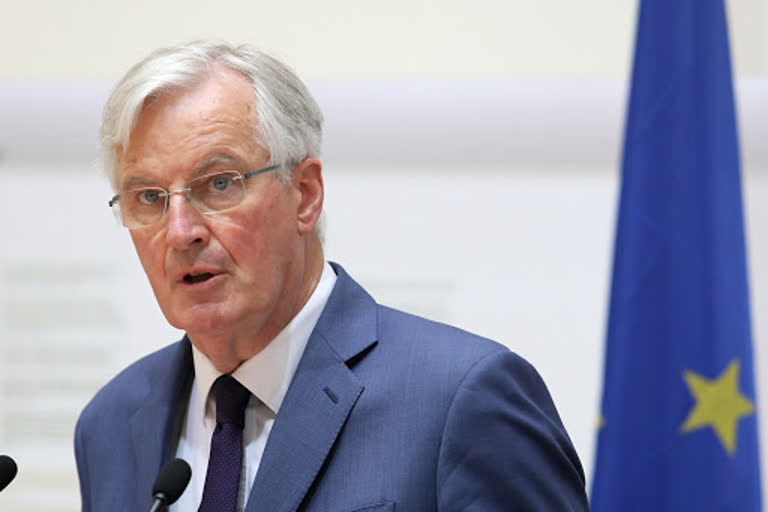Luxembourg: EU Brexit negotiator Michel Barnier said Tuesday that a deal with Britain could be reached this week, but warned more tough talks are still needed.
British and EU officials are racing to reach a deal on Britain's exit terms before a summit of EU leaders starting on Thursday, as Prime Minister Boris Johnson seeks to fulfill his vow to take Britain out on October 31.
As he arrived in Luxembourg to brief the other 27 EU states on the state of the closed-door talks, Barnier struck a cautiously upbeat note.
"This work has been intense all along the weekend and yesterday because even if the agreement will be difficult -- more and more difficult to be frank -- it's still possible this week," Barnier told reporters.
"Obviously any agreement must work for everyone -- the whole of the United Kingdom and the whole of the European Union. Let me add also that it is high time to turn good intentions into legal text."
After weeks of gloom and growing fears Britain would crash out of the bloc with no divorce arrangements in place, the last few days have given a glimmer of hope that an agreement can be reached -- through there has so far been no decisive breakthrough.
More than three years after Britain's 2016 referendum vote to leave the EU, talks remain stuck on how to avoid customs checks on the land border between British-ruled Northern Ireland and Ireland, which is staying in the bloc.
The EU had reservations about London's proposed customs arrangements and the proposed role for Northern Ireland's Stormont assembly in giving consent to the plans.
Read more: UP government ends services of 25,000 Home Guards on Diwali eve
London's Brexit Minister Stephen Barclay will join Barnier in Luxembourg later in the morning in what is being interpreted as a positive sign for progress in the talks -- which have been shrouded in secrecy since the weekend as the two sides seek to avoid potentially damaging leaks.
"It's not done yet but we're trying. The British want a deal and they have moved on customs and Stormont," a senior European diplomat told AFP, referring to the role of the Northern Irish provincial assembly.
"We'll have to see if it's enough to be turned into a legal text. We must be cautious."



